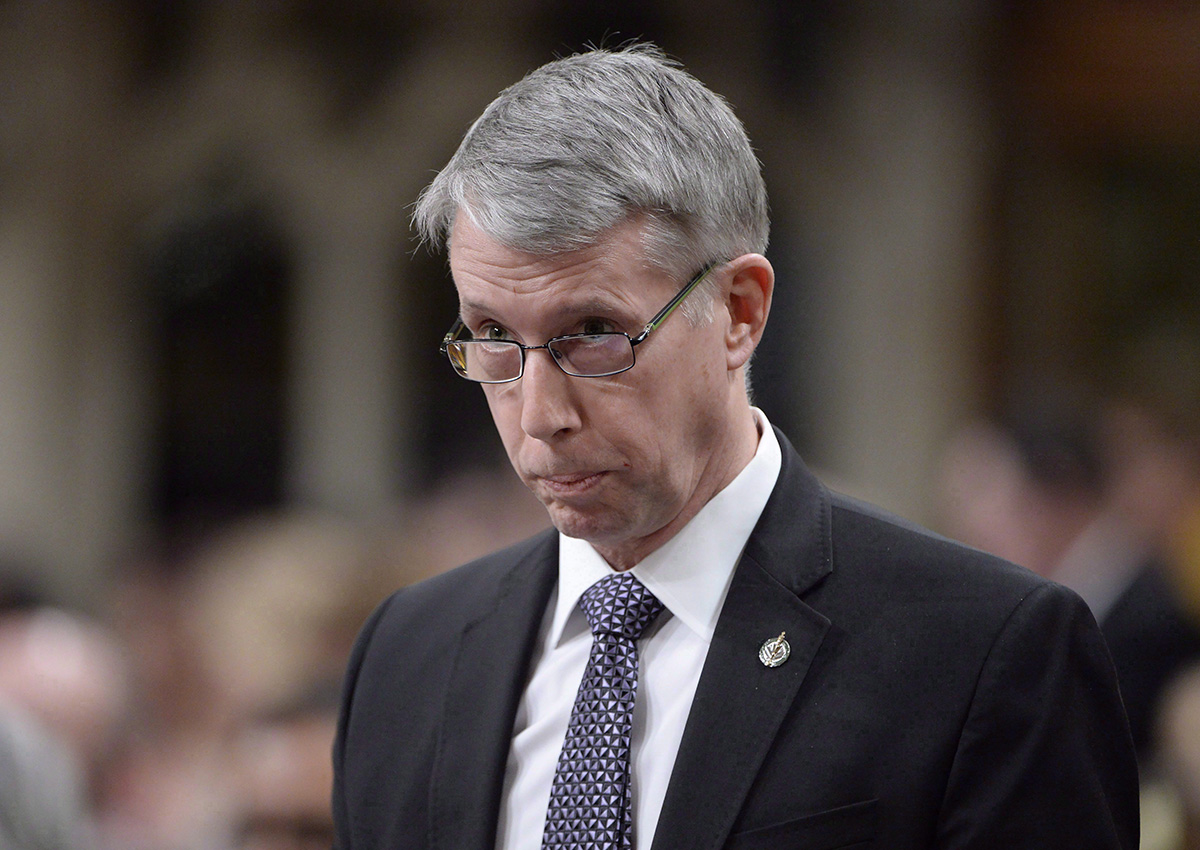WASHINGTON – Just before lunchtime in Washington, a Canadian MP spoke to his audience’s stomach about the tasty attributes of the North American Free Trade Agreement and how cancelling it would cause economic indigestion.

Andrew Leslie told the story of a hamburger.
The parliamentary secretary for Canada-U.S. relations used the journey of a burger to illustrate the interconnectedness of modern supply chains and argued that tearing up NAFTA would rip the bread from the patty and the condiments and leave an economic mess.
READ MORE: Donald Trump will keep focus on trade as he celebrates 100th day in office
He was speaking at Johns Hopkins University a few days after President Donald Trump floated the idea of serving notice the U.S. might start pulling out of the continental trade agreement in six months.
Leslie talked about the tens of thousands of Americans employed by TD Bank, the thousands who work on TransCanada pipelines and the states that have Canada as their No. 1 customer.
And then he brought up burgers.
WATCH: Trump on NAFTA: will renegotiate or terminate deal

He described a how a cow raised in Alberta gets processed in the U.S., and ends up in a bun baked in California with wheat from Saskatchewan, topped with lettuce from Arizona and a tomato from Ontario.
“You (get) that (burger) for what – five bucks?” Leslie said. “Think of the complexity of that. Think of the decades it took for the various elements to reach their peak efficiency in what they were doing best, into an integrated supply chain. . . .
“How do you untangle that? How do you do that and retain the value-added that’s built up over the last 40 or 50 years? That was a simple example.”
The Trump administration says it intends to start renegotiating NAFTA with Canada and Mexico later this year and reserves the right to withdraw if those negotiations fail to achieve a new deal.
But it’s articulated conflicting objectives – just in the last few days.
On the one hand, Trump’s team has spoken of the need for major upgrades in complex areas, like dairy, lumber and pharmaceuticals. On the other hand, it’s expressed a desire to do it quickly, within months – and get a deal wrapped up before the Mexican election next year.
READ MORE: Donald Trump planned on giving Canada only 5 days’ notice of NAFTA withdrawal
Trade-watchers are overwhelmingly skeptical these two goals are compatible.
“The U.S. is hoping to fuse quick with thorough by rolling Canada and Mexico on the issues they care about,” said Eric Miller, a former Canadian official who runs a trade consultancy, Rideau Potomac Strategy Group.
“(But) I don’t see how you do a major rejig in six months.”
Asked whether the Canadian government favours a quick renegotiation, or a thorough one, Leslie said little. He said the Canadian government has a list of demands ready, but intends to keep its cards hidden for now.
He said Canada is waiting for the U.S. to make its opening move, which would come after the White House sends a formal notice to Congress that negotiations will start in 90 days.
One thing Leslie described as a non-starter: cancelling the deal.
“Tearing up the agreement is, in my opinion, not the answer,” Leslie said. “There’s a deep understanding there’s no good that would come from replacing perceived impediments to Canada-U.S. trade with real ones.”



Comments